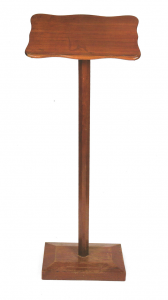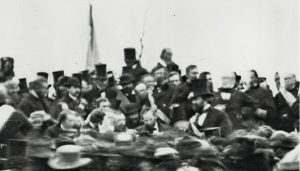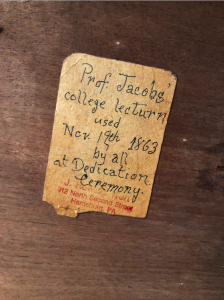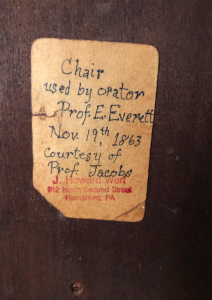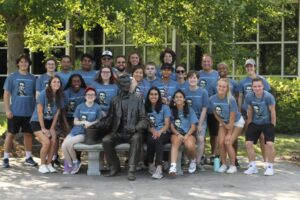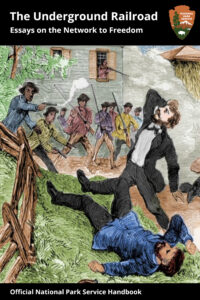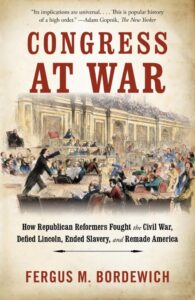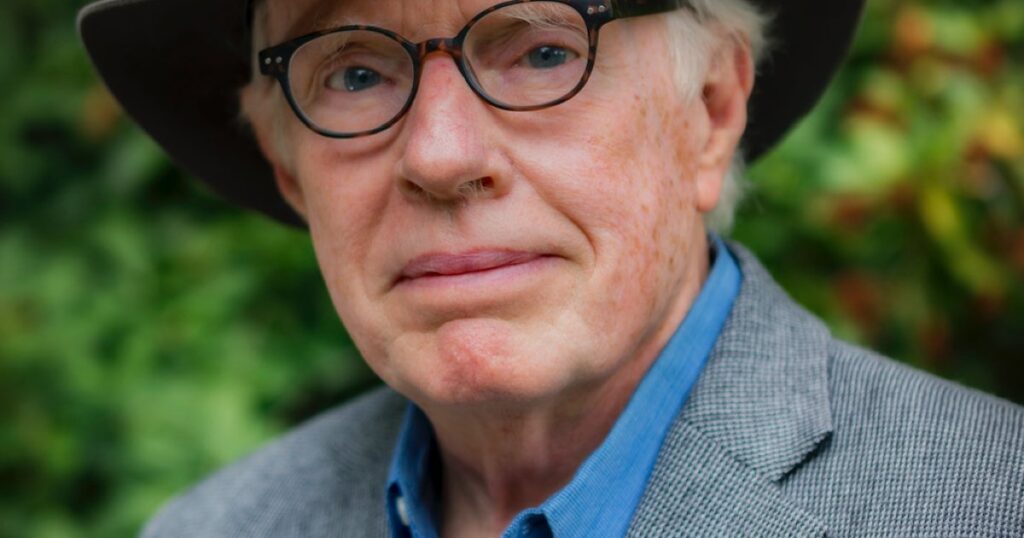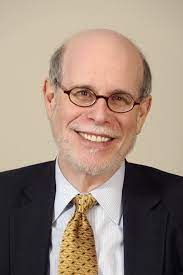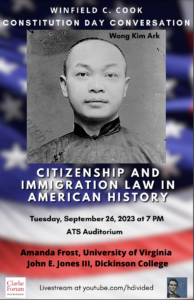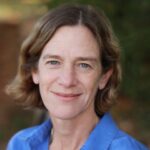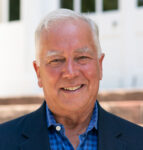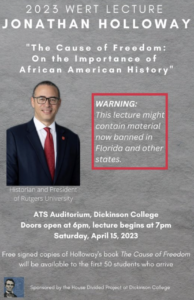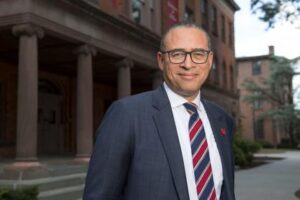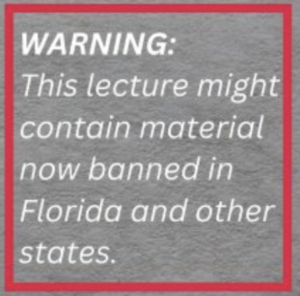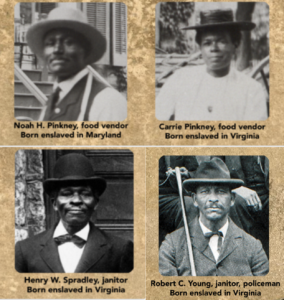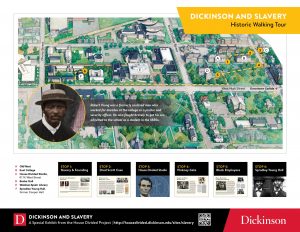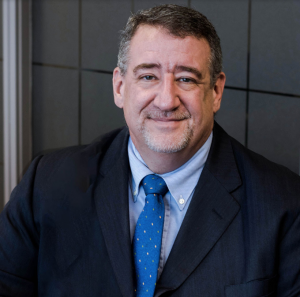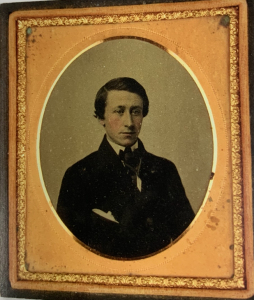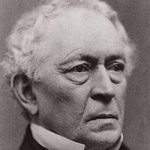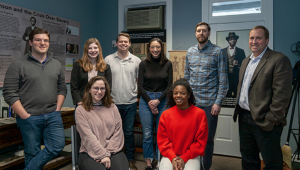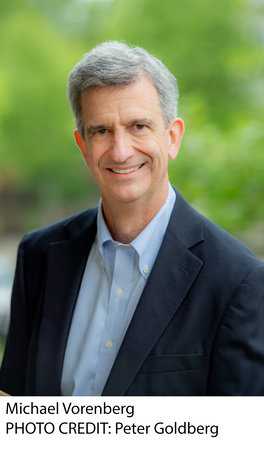 On Thursday evening, March 26, 2026, noted historian Michael Vorenberg (Brown University) will deliver the sixth annual J. Howard Wert Lecture from the lectern that was on the speaker’s platform when Abraham Lincoln gave his Gettysburg Address in 1863. Vorenberg will speak on “Lincoln’s Peace: The Struggle to End the American Civil War.” This event is free and open to the public and will be held at the Stern Center Great Room (campus map). Doors open at 6pm for those who would like to view the lectern and other rare artifacts, including an early printed copy of the Declaration of Independence and other special America 250 items connected to Revolutionary era leaders such as Benjamin Rush and George Washington. Vorenberg’s lecture begins at 7pm and will continue until 8pm with a book signing to follow. The first 50 students who arrive will receive free, signed copies of Lincoln’s Peace (Knopf, 2025).
On Thursday evening, March 26, 2026, noted historian Michael Vorenberg (Brown University) will deliver the sixth annual J. Howard Wert Lecture from the lectern that was on the speaker’s platform when Abraham Lincoln gave his Gettysburg Address in 1863. Vorenberg will speak on “Lincoln’s Peace: The Struggle to End the American Civil War.” This event is free and open to the public and will be held at the Stern Center Great Room (campus map). Doors open at 6pm for those who would like to view the lectern and other rare artifacts, including an early printed copy of the Declaration of Independence and other special America 250 items connected to Revolutionary era leaders such as Benjamin Rush and George Washington. Vorenberg’s lecture begins at 7pm and will continue until 8pm with a book signing to follow. The first 50 students who arrive will receive free, signed copies of Lincoln’s Peace (Knopf, 2025).
[A LIVESTREAM LINK WILL BE ARCHIVED HERE]
High school students participating in Dickinson’s innovative Knowledge for Freedom summer seminar will also be receiving free signed copies of Vorenberg’s book. The Knowledge for Freedom program is designed especially to help get low-income or first-generation college students ready for college. From July 12 to July 24, 2026, rising high school seniors from around the region will be participating on campus in this free residential experience that includes field trips to Gettysburg and Washington, DC. Deadline for applicants is May 31, 2026. (To learn more, go to the course website).
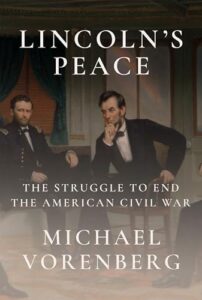 Michael Vorenberg is most recently the author of Lincoln’s Peace: The Struggle to End America’s Civil War (Knopf, 2026), a seminal study that Kirkus Reviews has called,”A brilliant work and a vital contribution to the canon.” Vorenberg is a professor of history at Brown University, in Providence, Rhode Island. He is also the author of Final Freedom: The Civil War, the Abolition of Slavery, and the Thirteenth Amendment, which was a finalist for the Lincoln Prize and a key source for Steven Spielberg’s 2012 film, Lincoln. He is the author of The Emancipation Proclamation: A Brief History with Documents, as well as a number of essays on slavery, emancipation, and the U.S. Constitution. His writings have appeared in the Chicago Tribune, The New York Times, Politico, and The Washington Post.
Michael Vorenberg is most recently the author of Lincoln’s Peace: The Struggle to End America’s Civil War (Knopf, 2026), a seminal study that Kirkus Reviews has called,”A brilliant work and a vital contribution to the canon.” Vorenberg is a professor of history at Brown University, in Providence, Rhode Island. He is also the author of Final Freedom: The Civil War, the Abolition of Slavery, and the Thirteenth Amendment, which was a finalist for the Lincoln Prize and a key source for Steven Spielberg’s 2012 film, Lincoln. He is the author of The Emancipation Proclamation: A Brief History with Documents, as well as a number of essays on slavery, emancipation, and the U.S. Constitution. His writings have appeared in the Chicago Tribune, The New York Times, Politico, and The Washington Post.
The J. Howard Wert Lecture is named in honor of J. Howard Wert (1841-1920), one of America’s great private collectors and pioneering educators. Wert was a young abolitionist and resident of Adams County, Pennsylvania who was present when Abraham Lincoln delivered his Gettysburg Address in 1863. The House Divided Project launched this annual lecture series in 2019 in partnership with the J. Howard Wert Collection and its current owner and curator, G. Craig Caba. Previous Wert Lecturers include Christy Coleman, former CEO of the American Civil War Museum, noted military historian Eric Wittenberg (Class of 1983), Rutgers University President Jonathan Holloway, and prize-winning historians Harold Holzer and Fergus Bordewich.
Background on the Collection
The J. Howard Wert Collection is considered one of the finest privately held collections of Civil War era artifacts in the country. Wert came from a prominent antislavery family in Adams County, Pennsylvania. The Wert family collected a number of important historical artifacts, dating back to the 18th century. Wert himself was a graduate of Gettysburg College who served as a scout for Union forces during the 1863 battle and was present for the Gettysburg Address later that year. Wert eventually enlisted in the Union army and became a teacher, author and noted school superintendent in Harrisburg. He died in 1920. During his lifetime, however, he was renowned for his collection of important historical artifacts. A 1910 newspaper profile claimed that Wert “had gathered a collection of relics at Gettysburg that could not be duplicated in any museum in the country.” In his own Gettysburg battlefield guide, which had been published in 1886 when he was forty-six years old, Wert wrote about how his collection of relics inspired him to try to recount the conflict for future generations:
As these lines are penned, from the walls around, cartridge-box and cap-box, bayonet and sword, canteen and canister, with a hundred other relics gleaned twenty-three years ago from the fields and woods we are now traversing, look mutely down upon the writer and vividly recall the sorrowful appearance of the bloated and distorted and blackened dead that lay close beside; noble, stalwart men were they, arrayed in garb of gray, who had bravely fought for what they deemed the right. (J. Howard Wert, A complete hand-book of the monuments and indications and guide to the positions on the Gettysburg battlefield, 1886, pp. 109-110)
Dedication Day, November 19, 1863
There are no eyewitness accounts or photographs from 1863 that actually depict the lectern or the chairs on the speaker’s platform. However, the photographs that do exist make very clear that the scene was more than a little chaotic and that most of the standing crowd would have had a limited view beyond the shoulder line of the speakers. Many of those present at the ceremony were impressed that the main orator Edward Everett seemed to have memorized his two-hour address, and some near the platform also remarked on how Lincoln slowly read his now much-more famous two-minute address, but few took note of other physical details from the platform itself. Yet, J. Howard Wert, then 22 years old, was definitely present at the ceremony. So was his friend, Henry Eyster Jacobs, a 19-year-old fellow graduate of Pennsylvania (later Gettysburg) College. His father, Michael Jacobs, was also there, and was at the time a professor at the college, writing a history of the battle. In fact, Prof. Jacobs had taken Everett on a tour of the battlefield in the days prior to the dedication ceremonies. We know this because Edwards himself mentioned the tour in his diary. Then, according to notes in the Wert Collection prepared decades later by J. Howard Wert, it was Professor Jacobs who provided his teaching lectern for the ceremony, along with at least one side chair, that was used by Everett, the former Massachusetts governor and U.S. senator while he was waiting to speak. These notes (previously unpublished), and various other relevant primary sources, including recollections by Wert and both Jacobs men, are provided below.
- Official select committee report & ceremony program (1864)
- Michael Jacobs book on battle (1864)
- Michael Jacobs article on touring battlefield: US Service Magazine with Part 2 (1864)
- J. Howard Wert battlefield guide (1886)
- J. Howard Wert recalling battle and cemetery dedication (1909): Part 1 and Part 2
- 1910 newspaper profile describing how Wert collected and annotated his battlefield relics
- Henry Eyster Jacobs on Gettysburg Address (1919)





